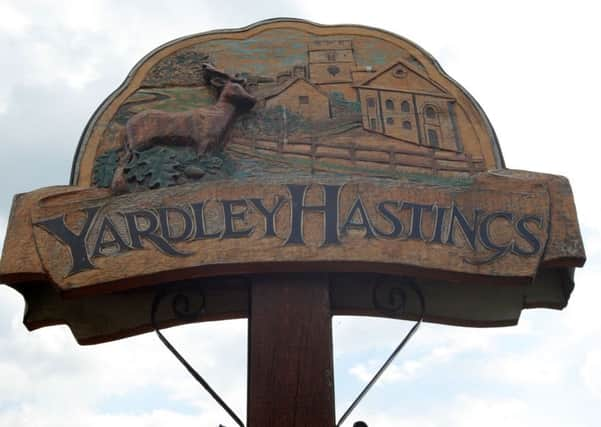DAVID SAINT: Yardley Hastings has a fascinating history


It starred Marianne Faithful and won a clutch of awards at European Film Festivals.
I have not seen it – although purely for research, you understand, I watched the opening sequence on the computer – but that’s as much of it as I want to see. It’s certainly not family viewing.
Advertisement
Hide AdAdvertisement
Hide AdThe long opening sequence over the titles was filmed from the air and takes us on a tour of the beautiful Northamptonshire village of Yardley Hastings and ends up with the heroine, Maggie hidden by a huge teddy, driving off from her home in the village.
Yardley first added the name Hastings following the death of Sir Henry de Hastings in 1250.
He’d inherited the Manor of the village by a route too complicated to explain involving the Conqueror’s niece Countess Judith, David, King of Scotland and an Earl of Chester who was poisoned by his wife!
During the “Scottish ownership” in 1234 it was proposed that a grand tournament be held in Yardley but it was called off by Henry III who thought such an assembly of barons and knights of varying political persuasions might lead to an uprising against him.
Advertisement
Hide AdAdvertisement
Hide AdOdd that, because 755 years later there was the nearest thing to a modern political skirmish.
Some 30 years ago the village faced a grim future when Yardley Chase was one of the possible sites for a third London Airport.
The second Battle of Hastings was being fought and The Chronicle and Echo of Friday, May 18, 1979 carried the headline: “Airport Plan: War Declared”.
Thankfully it came to nothing, but for a time it was a real threat.
Advertisement
Hide AdAdvertisement
Hide AdYardley Chase is a magnificent area bordering Buckinghamshire and was much loved by William Cowper from Olney who used to glory in the great oak trees there.
One, known as Cowper’s Oak, was the subject of a poem by him in which he praised the ancient dead-looking tree “Yet life still lingers in thee” comparing it to younger oaks, “So much thy juniors, who their birth received half a millennium since the date of thine”.
Yardley had some fascinating customs in centuries past dating from 1609.
I’m not sure some of these would please the present residents and especially the rectors, “Every man, rich or poor, is to pay a penny at Easter for their garden”.
Advertisement
Hide AdAdvertisement
Hide AdHowever, “The parson is to bake bread and cakes and brew drink for the parish”.
He also had to “find a load of straw at Christmas and Easter for the seats in the church that parishioners might be warm.”
And he had to provide a bull and a boar for the use of the town.
He did very well through the ancient Tithe system. For instance, “For every foal that falleth with the said town, the parson was to have a penny at the Easter following its birth.”
But he had to repay his parishioners generously because he was to give “the whole town a Christmas Dinner”!